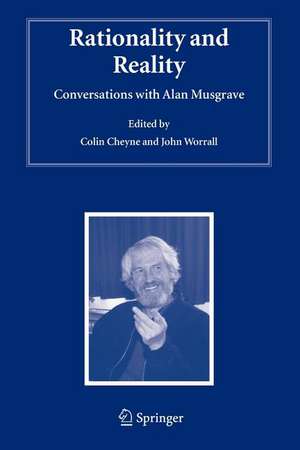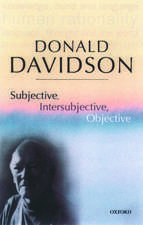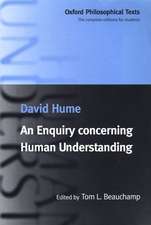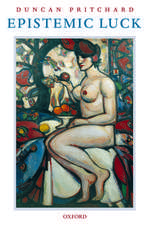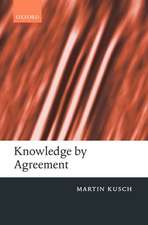Rationality and Reality: Conversations with Alan Musgrave: Studies in History and Philosophy of Science, cartea 20
Editat de Colin Cheyne, John Worrallen Limba Engleză Paperback – 10 oct 2011
| Toate formatele și edițiile | Preț | Express |
|---|---|---|
| Paperback (1) | 946.87 lei 6-8 săpt. | |
| SPRINGER NETHERLANDS – 10 oct 2011 | 946.87 lei 6-8 săpt. | |
| Hardback (1) | 953.03 lei 6-8 săpt. | |
| SPRINGER NETHERLANDS – 23 iun 2006 | 953.03 lei 6-8 săpt. |
Din seria Studies in History and Philosophy of Science
- 15%
 Preț: 650.19 lei
Preț: 650.19 lei - 15%
 Preț: 700.75 lei
Preț: 700.75 lei -
 Preț: 284.47 lei
Preț: 284.47 lei - 15%
 Preț: 702.24 lei
Preț: 702.24 lei -
 Preț: 389.88 lei
Preț: 389.88 lei - 18%
 Preț: 1222.94 lei
Preț: 1222.94 lei - 15%
 Preț: 647.08 lei
Preț: 647.08 lei - 15%
 Preț: 645.47 lei
Preț: 645.47 lei - 18%
 Preț: 956.33 lei
Preț: 956.33 lei - 18%
 Preț: 953.97 lei
Preț: 953.97 lei - 15%
 Preț: 646.11 lei
Preț: 646.11 lei - 15%
 Preț: 641.85 lei
Preț: 641.85 lei - 15%
 Preț: 644.49 lei
Preț: 644.49 lei - 18%
 Preț: 951.29 lei
Preț: 951.29 lei - 15%
 Preț: 647.40 lei
Preț: 647.40 lei - 18%
 Preț: 953.20 lei
Preț: 953.20 lei - 18%
 Preț: 1384.56 lei
Preț: 1384.56 lei - 18%
 Preț: 1234.14 lei
Preț: 1234.14 lei - 15%
 Preț: 637.78 lei
Preț: 637.78 lei - 15%
 Preț: 633.53 lei
Preț: 633.53 lei - 18%
 Preț: 1219.77 lei
Preț: 1219.77 lei - 24%
 Preț: 586.95 lei
Preț: 586.95 lei - 18%
 Preț: 967.56 lei
Preț: 967.56 lei - 15%
 Preț: 641.38 lei
Preț: 641.38 lei - 15%
 Preț: 642.68 lei
Preț: 642.68 lei - 15%
 Preț: 642.03 lei
Preț: 642.03 lei - 15%
 Preț: 641.85 lei
Preț: 641.85 lei
Preț: 946.87 lei
Preț vechi: 1154.72 lei
-18% Nou
Puncte Express: 1420
Preț estimativ în valută:
181.18€ • 189.18$ • 149.61£
181.18€ • 189.18$ • 149.61£
Carte tipărită la comandă
Livrare economică 15-29 aprilie
Preluare comenzi: 021 569.72.76
Specificații
ISBN-13: 9789048170722
ISBN-10: 9048170729
Pagini: 348
Ilustrații: X, 326 p.
Dimensiuni: 160 x 240 x 18 mm
Greutate: 0.49 kg
Ediția:2006
Editura: SPRINGER NETHERLANDS
Colecția Springer
Seria Studies in History and Philosophy of Science
Locul publicării:Dordrecht, Netherlands
ISBN-10: 9048170729
Pagini: 348
Ilustrații: X, 326 p.
Dimensiuni: 160 x 240 x 18 mm
Greutate: 0.49 kg
Ediția:2006
Editura: SPRINGER NETHERLANDS
Colecția Springer
Seria Studies in History and Philosophy of Science
Locul publicării:Dordrecht, Netherlands
Public țintă
ResearchCuprins
Where Does the Burden of Theory Lie?.- Testimony, Induction and Reasonable Belief.- Theory-Confirmation and History.- Critical Rationalism and its Failure to Withstand Critical Scrutiny.- Methodological Rules, Rationality, and Truth.- Why is it Rational to Believe Scientific Theories are True?.- Thinking About the Ultimate Argument for Realism.- The Unseen World.- Why Alan Musgrave Should Become an Essentialist.- The Metaphysics of Realism and Structural Realism.- Scientific Realism and Mathematical Nominalism: A Marriage Made in Hell.- A Methodological Critique of the Semantic Conception of Theories.- A Refutation of Peircean Idealism.- Historiography as a Hypothetico-Deductive Science: A Criticism of Methodological Historism.- Ptolemy's Musical Models for Mind-Maps and Star-Maps.- Responses.
Textul de pe ultima copertă
Alan Musgrave has consistently defended two positions that he regards as commonsensical – critical realism and critical rationalism. In defence of critcal realism he argues for the objective existence of the external world as opposed to idealism, as well as arguing for scientific realism against all anti-realist accounts of science. His critical rationalism is drawn from the work of Karl Popper and stands opposed to inductivist and irrationalist methodologies. In defence of these positions, Musgrave’s writings have covered a wide range of topics in epistemology, metaphysics, philosophy of science, philosophy of mathematics, history of science, theories of truth, and economic theory. In this volume a group of internationally-renowned authors discuss themes that are relevant in one way or another to Musgrave’s work. This is not intended as a standard celebratory festschrift but rather as a new examination of topics of current interest in philosophy. The contributory essays are followed by responses from Alan Musgrave himself.
Caracteristici
Contains an interaction of Musgrave’s views with a wide variety of his critics and admirers Brings together diverse aspects of Musgrave’s long-standing defence of realism and rationality Musgrave’s unique perspective on Karl Popper’s epistemology is both developed and scrutinized
